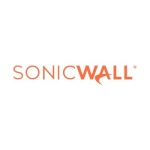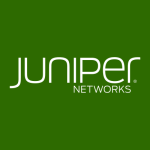What is our primary use case?
I primarily use it for hybrid home/business power usage at a very small scale. It is both home and business because of working from home. pfSense is serving us as the main routing firewall and network configuration tool. It is the front-end brain for everything in our mixed environment.
How has it helped my organization?
pfSense allows me to manage both home needs and business needs and keep them relatively separate or at least appropriately separate. A key feature was to be able to use a small-scale device. I am using Netgate SG-1100, which is built to run pfSense on an RM platform. It has low power consumption, and it is economical. I did not need massive amounts of compute power, but I did need the feature set that typically, you can only get in enterprise-grade product lines such as Cisco.
pfSense is extremely flexible. The areas where I find it very flexible are the sheer number of configuration tools that are available and the extra packages that can be used to augment the core functionality. Even within the core functionality, it is capable of adapting to a massive number of different scenarios and network environments and needs. You can adapt to the needs of your network environment to the outside with ISP and internal needs. You can accomplish what you want to achieve internally with the product. It seems to have pretty much everything under the sun laid out.
It is pretty easy to add features to pfSense and configure them. If I am adding something for the first time, the web GUI is the most helpful tool because the layout is pretty logical in terms of how the forms are organized and fields are named and described. There are help callouts, and, of course, documentation. I have always found the official documentation to be helpful, but it is not uncommon to do some forum searching and read the discussions. Other people might be following a workflow that does not fit quite cleanly in there, but they made it match. Typically, it is pretty easy. Some of the things that I have done with pfSense are not inherently easy processes, but I feel that pfSense has made them much easier than they would be on different platforms.
I was able to realize its benefits immediately. I am an IT professional, but my use of pfSense is not as an IT professional. It is more like a solo entrepreneur for my wife and her business. When I look at the network administration that I am doing here, it says a homeowner and a business co-owner. IT and networking are not the kinds of things I want to dominate my time. It should not be dominating my time spent. From that standpoint, I was able to get the baseline configuration set up so quickly when I first set it up about seven years ago. I definitely felt a big value-add with the configuration backup and restore process. The first time I broke something on pfSense, I was able to revert my last configuration very quickly. That was a big win.
In terms of pfSense helping to prevent data loss, auto configuration backup is probably the number one feature. When I think about data loss in pfSense, I would mostly be concerned with losing the configuration itself. Having my own backups but also having Netgate backups available for me to pull down helps. I just have to make sure I keep the encryption password, and we are good to go. That is a big win.
I use pfSense Plus. I am pretty sure that auto configuration backup is a Plus feature. I am on my second generation of official Netgear appliance, so my experience with the Community Edition is limited. I am not sure if this feature is available to others, but for minimizing downtime, having the auto configuration backup is a big one. There is a restore option for quick reverts if a change did not go quite well. They are incremental, so reverting to whatever snapshot or revision version I need to revert to is very easy.
pfSense does not give a single pane of glass management, but I also would not expect that because it is doing so much and is capable of doing so much. In my environment, it is managing so many different aspects of the whole Netgate, but there is not a single pane. I use the logs a lot, but I have to look through individual logs. I am not aware of any log aggregation and analysis components that are already baked into pfSense. As I understand it, I need to ship my pfSense logs into another system to do a higher-level analysis and insight querying. An area that I am interested in working on is effective outbound traffic filtering. It is on our priority list because it is a tricky one. You do not want to let any outbound traffic go, but you also need to be careful how you are filtering outbound traffic so that you do not break things you are relying on for your functionality. A lot of people use a web proxy, but that only catches web traffic. With smart home devices and business stuff going on, you have to pay attention to it. I am very interested in being able to analyze the traffic logs that are being captured by pfSense with an IO, the outbound traffic, and the existing and potential firewall rules that I have in place for those. My current efforts have been focused on doing so with a different product because I do not believe that pfSense delivers that. I honestly did not expect that it would.
iperf helps with performance. We are able to do iperf bandwidth tests as both client and server to various endpoints and turn on a quick listener and see what is going on with who can get where fast. The diagnostic menu list is probably the longest one in there. That is a good sign because it just means that they have got a lot of tools available for me to use if something is not quite working right. If I want to improve performance, I have to take a measurement and take a look at what is going on currently and compare that to what I would expect to see. There is a wide variety of toolsets. I am not asking for this because it is not the kind of system that I would want to run, but there is no troubleshooting or performance improvement wizard that kind of walks you in a logical step. I know that there is one initial configuration wizard that is meant to get people going quickly for the first time and in a fairly simple setup, but even that was not a great value to me because I want to get quickly into more advanced configurations. It has what I expect for performance tuning.
What is most valuable?
Being able to configure VLANs on such a small device is one of the key unique features that made it attractive to me.
What needs improvement?
pfSense is very flexible, but my only drawback in terms of flexibility is that it is web GUI-driven. I know that there are some shell interfaces, but it is not a very heavily developed API when it comes to automation or configuration-as-code management. I would love to see that developed in the future so that I am able to manage my network configuration in YAML and TOML text format, have those changes applied in a source code environment, and have those changes read into an API that could then drive the configuration rather than have always having to use the web GUI just to make some layout changes. Web GUI has its advantages, but there are times when being pinned into that workflow is less efficient.
They should support the idea of configuration management as code from source code and provide a more robust API for managing the pfSense configuration. I know that with the web GUI, everything is dumped into an XML file. That is how it is backed up, and that is how it is imported. It is machine-readable and all that, but it is not necessarily a modern data format that would be used with API typically. They are maybe thinking of moving to REST API and SQLite backend. I do not know what they have in mind. I do not really care how they do it, but I would love to have the ability to interact with my configuration and make incremental changes via source code and utilize the API to implement those changes and roll them back with configuration as code as a strategy for managing my pfSense.
For how long have I used the solution?
It has been about seven years.
What do I think about the stability of the solution?
The device is rock solid. I have not had any hardware concerns or issues. I do not have to reboot it. If I am having some kind of network issue, I do not have to restart my pfSense. Why I wanted the free BSP base is that I know that the core layer is rock solid. It is possible that something could happen where I would need to restart, but it almost never does.
How are customer service and support?
It may have been with the older device for which I have worked with them twice. I opened a ticket to get the download link for recovery firmware on the SG-1000, and they gave it to me. That was very easy. That was fine. They responded quickly, no big deal. I appreciate it. I did not really need support. It was something that I could not get directly from the website myself.
I am not sure, but when I bought SG-1000, I might have had to send it back. They sent a replacement. It was less than a year since I had it. I still had a full warranty on the hardware. At some point, everything froze, and all functionality completely stopped. I tried the power cycle, and it would not even boot anymore. They did the serial console connection, and it literally was not even booting. They opened up a case and verified the same symptoms that I described. They replaced the board and sent it back to me, and it worked. It was solid from that point for five years that I continued to use it. After that, I upgraded it. Every once in a while you get bad hardware, but I was glad I could just send it back. The biggest fear I have, and probably the only reason I still have the old one lying around is that if something were to happen to this hardware and I had to send it back for support, I need to be able to keep my network running in the meantime. Even as a home and home business user, you start to creep into that space where you start to think that this is critical. How do you get by without the Internet? I know that I could get Internet back up, and I could plug in any off-the-shelf routers lying around and get basic Internet service back up, but the question is how much work would I have to put in to restore other services that pfSense is performing. I recognize that I did not invest in a high availability solution for my home and home business, so that is just a risk that I have to take.
I would rate their support a ten out of ten. There is nothing difficult about it.
How would you rate customer service and support?
Which solution did I use previously and why did I switch?
Prior to my first pfSense appliance, back in 2017, I was running DD-WRT, which is not a commercial alternative. It is an open-source project that does not even have a paid or commercially supported version. It is meant to be flashed onto OEM hardware as a replacement for their firmware. pfSense can be used like that, but Netgate is doing something different with the commercial support and building the appliances and all that. In terms of the baseline functionality, DD-WRT is very similar.
In terms of comparison, pfSense is much more robust. It is a comprehensive solution for networking needs that bridges the gap between a shelf router and building a full enterprise stack, which would be overkill. Most small businesses and home users would not want to do that, make that kind of investment, and keep that kind of compute running all the time. pfSense lands right in that sweet spot. I know that OPNsense and a few other software products are out there. There are some Linux-based ones. I am definitely a fan of pfSense being built on free BSD. That gives me greater peace of mind with the networking stack and everything. I am a Linux guy too, but when it comes to core services, I prefer free BSD. If I have to, I might just go with the vanilla, free BSD system and build it out with automation from scratch, but pfSense does all that for me. I do not have to do all that initial work. They have got the configuration and tuning done already.
How was the initial setup?
If you have general networking knowledge and understand the terminology, it is very easy. It depends on how detailed or how extensive is your configuration and what is the target use case. Are you using a VPN? One of the features I use is OpenVPN.
I go through the box. I have a single WAN connection. I have half a dozen VLANs configured. I have a VPN remote access interface configured. I have got DHCP servers. I also have IPv6 configured. I have extra configurations for each interface that need to be considered, including the VLAN interfaces. There are also firewall rules.
You can start with the baseline, and you can get the thing up and connected to the Internet easily within five to ten minutes. Once you start doing your internal configurations and firewall rules, it scales pretty quickly. With a couple of VLANs, like I have, you spend another half hour to get the VLAN to spec out. With OpenVPN, you have to work on certification generation and certificate matching and exporting. Configuring the client's side tends to be time-consuming. If you have four clients, it could take another hour to three, and then there are firewall rules. It depends on how you write them. If you write your rules well, you do not need to have so many of them. It also depends on how you configure your space. I have a lot of interfaces and a lot of rules. With a good, clear plan and no guessing and backpedaling, you could probably redeploy what I did in three to four hours, but it would actually take longer because of mistakes, troubleshooting, and all that.
In terms of maintenance, I certainly keep up with updates from upstream and make sure that I am aware of any software updates that I need to install. I like to stay updated with patches and all that. That was the main reason I finally upgraded from SG-1000. It was no longer getting the updates. There is always a bit of extra maintenance. It is not because pfSense demands maintenance. It is because the environment demands continual maintenance and monitoring. Paying attention to logs is a healthy practice.
I always make updates via pfSense whenever I am making updates in the environment for adding new DHCP reservations for various hosts in the environment and other things like that. I moved my local DNS services from pfSense because I had to go into the web GUI and clumsily add in new host entries. It was getting burdensome. I just wanted to be able to do this in a text file like I could on a Linux server. You just add your entry to the host file and you are done. I moved to DNS services on the Pi-hole software. Pi-hole is a partial competitor because it does not do everything pfSense does, but it can do some of the things. It focuses on ad blocking and filtering as well as providing local DNS resolution. A nice thing with Pi-hole is that you can literally open up a text file and add your entries there, and they just start working. You do not have to move from a terminal-based workflow to get that change made. Clicking through a web browser is not my favorite. It is a disruption to a workflow. So, maintenance is directed by requirements in the environment.
What's my experience with pricing, setup cost, and licensing?
I buy the appliance and accept whatever comes with it, but I am not bought into paid support. When it comes to the pricing of the appliances, they are pretty competitive. The price is pretty competitive.
I just bought a Netgate SG-1100. Within the past year, I upgraded my Netgate SG-1000 from 2017 to Netgate SG-1100. I looked at some of the higher-spec products, but they started to get pricier. For example, Netgate 2100 was a consideration. The difference between the 1100 and 2100 is double. I looked at the specs of 2100 and what it could deliver. I did not need all the extra specs. I do not need to perform at that level although it might be nice to have some extra ports on my box. I then looked at 1100. I could get by with those specs. It was an improvement over the tiny SG-1000 that I was running, so it was a win, but the question always is whether there is something competitive and similar that I can build for less money and whether it would deliver the same value. You can get these Small Form Factor PCs. You can get ARM systems and x86 systems and similar form factors. You can get them with multiple NICs already installed. This is more or less your hardware with no support. You get a warranty on the hardware, but they are not selling you the software. You put whatever you want on it and build your system. You can install pfSense CE on that or build your own router on a device like that. Why I chose to buy it from Netgate was the peace of mind of the full stack support because it is probably the most critical portion of my entire home network. I decided to invest a little bit more and trust somebody else a little bit more to have my back. Peace of mind comes from having bought the official appliance. It has a very reasonable and competitive price model.
In terms of the total cost of ownership, you have the hardware price. You are combining the price of any hardware support contracts that you may or may not be paying for and somehow estimating the administrative time that is required to actually manage the system itself and billing somehow for that appropriately. That is a tough one because that is where there is a gray area of home business usage. Aside from that gray area, the investment rolls off very quickly. I can recoup this investment within a year.
What other advice do I have?
I would rate pfSense a nine out of ten. It is delivering on my needs. There is little room for improvement. They can just close the gap. You always want to keep closing that gap when it comes to usability, inconvenience, and meeting the workflow, but it is definitely delivering to my expectations very well.
Disclosure: PeerSpot contacted the reviewer to collect the review and to validate authenticity. The reviewer was referred by the vendor, but the review is not subject to editing or approval by the vendor.

















